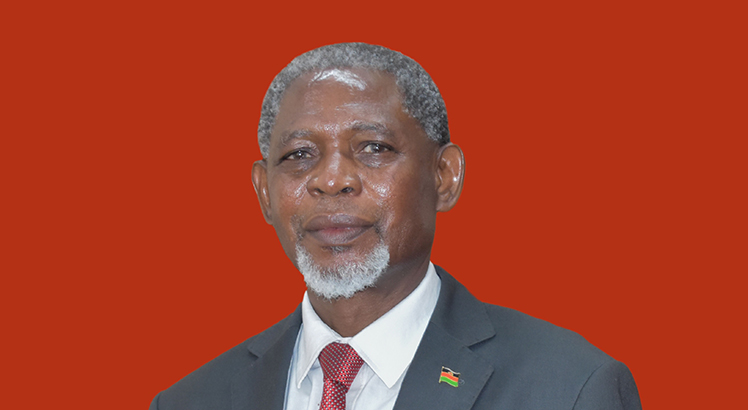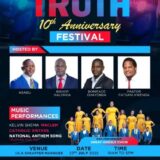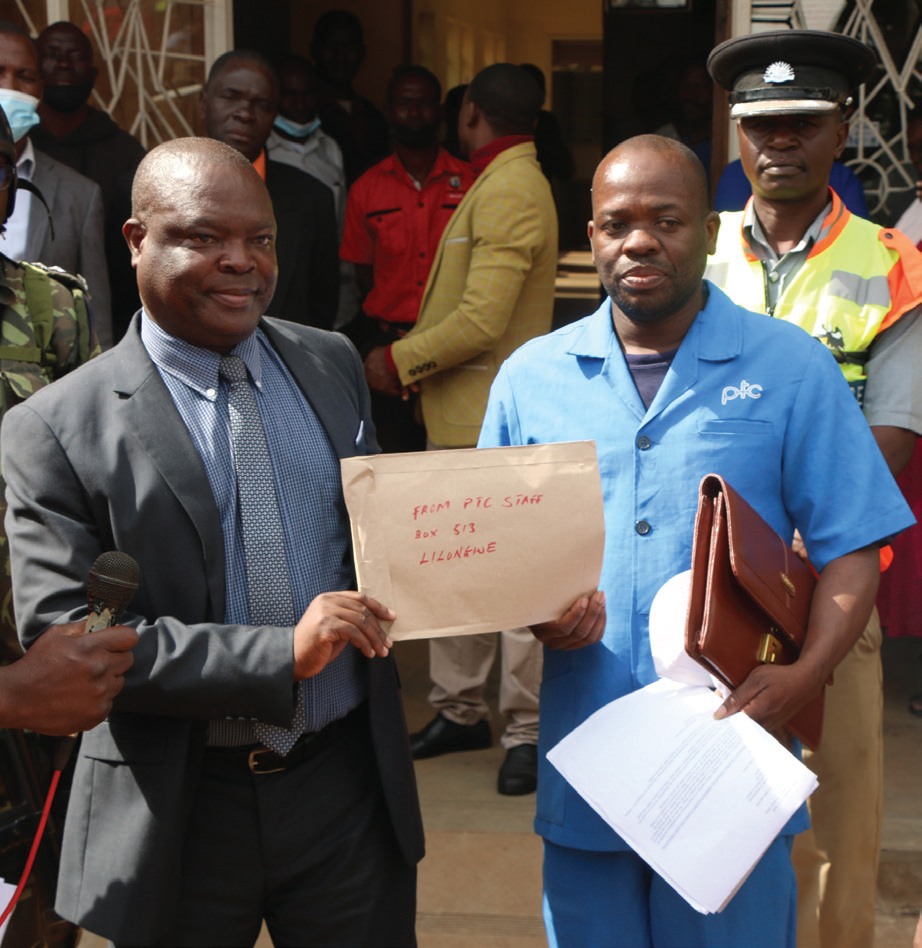There are mixed opinions on Parliament’s move to pass a motion to facilitate amendment of the law to allow the Anti-Corruption Bureau (ACB) to prosecute cases without seeking consent from the Director of Public Prosecutions (DPP).
Moved by Legal Affairs Committee of Parliament vice-chairperson Ashems Songwe, who is also Likoma member of Parliament (MP) affiliated to Malawi Congress Party (MCP), the motion stresses the need to amend the Corrupt Practices Act (CPA) to do away with DPP’s consent purportedly because the arrangement undermines the independence of the bureau.
Mvalo: We are not
against the idea
The motion received resounding approval from legislators across the political divide in the House as most of them held the view that the proposed amendment would improve the fight against graft.
But Minister of Justice Titus Mvalo told Parliament that the passing of the motion and the subsequent Private Member’s Bill to amend the CPA were of no consequence as the DPP is constitutionally the ultimate authority on matters of public prosecution.
He said instead of pushing for the amendments, the House would do better to wait for the establishment of the National Prosecutions Authority which is set to address Parliament’s fears.
The minister said: “We are not against the idea, but the law says that any Act which is in contravention with the Constitution is invalid, so changing this Act will mean changing the Constitution as well.”
The motion proposes amendments to remove Section 10 (1) of the CPA which require the bureau to obtain consent from the DPP to prosecute offences. It also targets Section 42 of Powers of the DPP which grants the DPP overriding authority to either take over, withdraw or discontinue any ongoing prosecution under the director of ACB.
Presenting the motion, Songwe said: “The Bill seeks to give the ACB total independence from the DPP. We want it to be able to commence an investigation and prosecute without seeking consent from the DPP which may not even be granted.”
Commenting on the motion, Thyolo Central MP Ben Phiri (Democratic Progressive Party-DPP) said amending the Act will help to show who are corrupt and who are just perceived to be corrupt as cases will be moving with speed and independently.
Phiri: It will help to show who are corrupt
He said: “I’m saying this because some of us are labelled corrupt and are surviving on bail bonds, yet the cases are stagnant. Today, we will make history if we allow this Act to be amended.”
Phiri also dismissed Mvalo’s line of thought, s a y i n g t h e s a m e Constitution, under Section 8, empowers Parliament to make laws, as such, the National Assembly should be allowed to make the proposed amendments in the interest of the public.
In his contribution, Chikwawa North MP Owen Chomanika (DPP) said ACB operations are negatively affected by bureaucracy in the system, including the issue of consent.
He said: “Let ACB be independent, we need to amend these sections so that the DPP has nothing on its operations.”
M Ps f r o m t h e government benches and MCP in particular, including Legal Affairs Committee chairperson Peter Dimba, who represents Lilongwe South, also supported the motion.
In a written response, Malawi Law Society (MLS) president Patrick Mpaka maintained his earlier position that the amendments do not contravene the Constitution because the cited sections, especially Section 99, do not say anything about seeking consent. He said the same section recognises other authorities to undertake criminal proceedings.
He said: “In our view, there is nothing inconsistent with the Constitution if CPA Section 42 were repealed. The constitutional checks and balances between the DPP, ACB and Legal Affairs Committee, as set out in Section 99 and read with CPA Section 10(1) f, would remain intact even if Section 42 of the CPA were removed.”
Catholic University of Malawi dean of law John Gift Mwankhwawa said in an interview a good constitutional amendment requires a consultative process because the Constitution is owned by the people.
He said the consultations take time, but are a worthwhile exercise and that was the reason the Malawi Law Commission was put in place.
“ There are some provisions in the Constitution which can be amended by a majority in Parliament, but others cannot. In short, a good constitutional amendment requires a cnsultative process,” Mwakhwawa said.
But in an interview later, Mvalo stated that any amendment of the Constitution requires two thirds majority to go through.
The motion comes against a background of the ACB complaining that the DPP was taking time to grant consent for prosecution of cases against some suspects in cases linked to United Kingdom-based businessperson Zuneth Sattar whose businesses have multi-billion kwacha contracts with Malawi Government ministries, departments and agencies.
During on Thursdays ’s deliberations, Parliament also passed a motion to allow paralegals have limited right of audience in court, another contentious issue which has attracted wide debate recently.
In his contribution, Dimba urged MPs to consider poor Malawians who cannot afford exorbitant legal fees and would have easy representation through paralegals at the State-funded Legal Aid Bureau.
He said there were less than 800 lawyers in the country against a population of 19 million, as such, lawyers are overwhelmed.
Parliament on Thursday adjourned early following concerns from MPs that there was no water and that the washrooms were producing a bad smell.
The post Opinions split on ACB status appeared first on The Nation Online.
 Moni Malawi
Moni Malawi 

